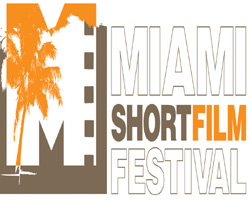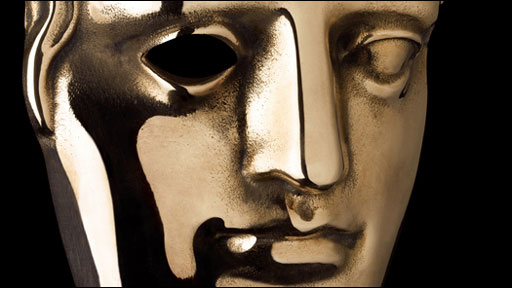|
|
||
|
Pro Tools
FILMFESTIVALS | 24/7 world wide coverageWelcome ! Enjoy the best of both worlds: Film & Festival News, exploring the best of the film festivals community. Launched in 1995, relentlessly connecting films to festivals, documenting and promoting festivals worldwide. Sorry for the interruption, we needed to correct and upgrade some modules. Working on a new website. For collaboration, editorial contributions, or publicity, please send us an email here. You need for put your full detail information if you want to be considered seriously. Thanks for understanding. User login |
ÉCU-The European Independent Film FestivalÉCU - The European Independent Film Festival is dedicated to the discovery and advancement of the very best independent films from around the world. We are a festival who believes in our independent filmmakers and their artistic talents. ÉCU proudly provides a unique platform that brings together diverse audiences who are hungry for something other than major studio productions and original and innovative filmmakers.
The 16th edition of ÉCU - The European Independent Film Festival will take place on 9th-11th April 2021. Now open for submissions!
For more details regarding the festival, please visit our website at www.ecufilmfestival.com.
 Meet Indie Filmmaker: MILK MAN
Photograph by Patrick Moore
Director James Rumsey recently submitted his film, Milk Man to the ÉCU 2010 Fiction Short category. Q: What is your film about?
Milk Man is about the consequences of getting stuck in one Q: What was the source of inspiration for your story?
Brian’s story was born out of my own. My story is utterly Q: There is a definite shock value in the way your story unfolds but was this intended from the beginning?
Yes, the story evolved from those “shock” elements, as you call Q: How would you define the genre of your film?
For me it’s film noir. Some scenes, such as the lighting Q: The quirks of your main character are very particular–how did you come up with this characterization?
Much of that was on the page but the translation of that into a Q: Why did you choose milk as one of your main character’s obsession?
As the script developed and different elements came together, the Q: What was the casting process like?
I loved it. Every actor that auditioned contributed to the evolution Q: Tell us a little about the soundtrack–how did you choose your music?
It was obvious from the edit process that Milk Man was a more subtle
… I had a clear source of inspiration in Bernard Hermann’s theme Q: Were there any difficulties that you encountered?
Sure. I’d been an Assistant Director until Milk Man and so although In general, the difficulties that were encountered end up being stories of triumph over adversity.
It wasn’t straightforward to find a convenience store that would let Q: Where was the location of your film?
Milk Man was shot in North London. My flat in East Finchley Q: Tell us about your next project.
Festivals! I’m a one-man-band and that’s taken a lot of time since 15.12.2009 | ÉCU-The European Independent Film Festival's blog Cat. : actor Anna Takayama assistant director audienjce choice award Bernard Hermann businessman Canada composer Contact Details Delia Remy Director Entertainment Entertainment Film Film noir Films filmstock international film festival 2009 Gerald Clark Henry Everett James Rumsey James Rumsey james@rumjamfilms.com London Milk Milk Man Milk Man Next Magazine Patrick Moore Person Career Photographer Producer Taxi Driver The Conversation the Filmstock International Film Festival Vancouver Vangelis Virgin Media writer writer , producer and director Interviews
|
LinksThe Bulletin Board > The Bulletin Board Blog Following News Interview with EFM (Berlin) Director
Interview with IFTA Chairman (AFM)
Interview with Cannes Marche du Film Director
Filmfestivals.com dailies live coverage from > Live from India
Useful links for the indies: > Big files transfer
+ SUBSCRIBE to the weekly Newsletter DealsUser imagesAbout ÉCU-The European Independent Film Festival Hillier Scott Hillier Scott (ECU)
Scott Hillier, Founder and President of ÉCU - The European Independent Film Festival
Scott Hillier is a director, cinematographer, and screenwriter, based in Paris, France. In the last 20 years, Hillier has gained international recognition from his strong and incredible cinematography, editing, writing, producing and directing portfolio in both the television and film industries.
Scott began his career in the television industry in Australia. In 1988, he moved to London getting a job with the BBC who then set him to Baghdad. This opportunity led him to 10 years of traveling around world for the BBC, mainly in war zones like Somalia, Bosnia, Tchetcheynia, Kashmir, and Lebanon. After a near fatal encounter with a Russian bomber in Tchechnyia, Hillier gave up his war coverage and began in a new direction.
He moved to New York City in 1998. He directed and photographed eight one-hour documentaries for National Geographic and The Discovery Channel. Based on his war knowledge and experience, Hillier wrote and directed a short film titled, “Behind the Eyes of War!" The film was awarded “Best Short Dramatic Film” at the New York Independent Film and TV Festival in 1999. From that he served as Supervising Producer and Director for the critically acclaimed CBS 42 part reality series, "The Bravest” in 2002 and wrote and directed a stage play called, "Deadman’s Mai l," which ran at Le Théâtre du Moulin de la Galette in Paris during the summer of 2004. He then became the Director of Photography on a documentary titled, “Twin Towers." This was yet another life changing experience for Hillier. The riveting documentary won an Academy Award for "Best Documentary Short Subject" in 2003. In 2004, Hillier changed continents again, spending three months in Ethiopia. He produced “Worlds Apart,” a pilot for ABC America / True Entertainment / Endemol. As you can see, Hillier was and is always in constant movement and enjoys working in a number of diverse creative areas including documentaries, music videos, commercials, feature and short films.
Scott studied film at New York University and The London Film and Television School. He also studied literary non-fiction writing at Columbia University. Hillier's regular clients include the BBC, Microsoft, ABC, PBS and National Geographic. Between filming assignments, he used to teach film, a Masters Degree course in Screenwriting at the Eicar International Film School in Paris, France and journalism at the Formation des Journalistes Français in Paris, France.
View my profile Send me a message The EditorUser contributionsUser links |



























